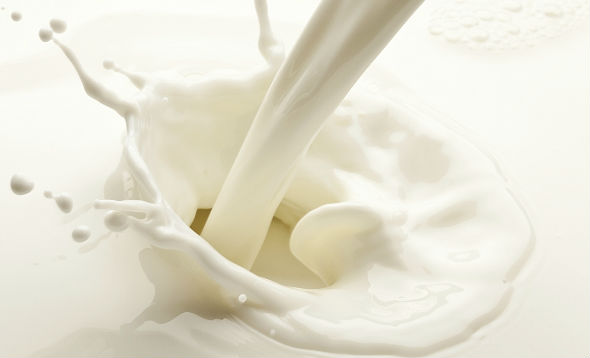That organic living is a conscious health choice
Goats Versus Cow's Milk
I often hesitate to use the words “better” or “worse” in any nutritional comparison. The truth is, both dairies are quite similar. There are differences between them and these can be meaningful - depending on each person’s dietary requirements.
PROTEIN:
While protein content is fairly equal, these milks differ in their protein composition. The two main dairy proteins are whey (liquid) and casein (solid). Cow and goat’s milk possess both, but their quantities and types vary considerably.
Yes whey:
Goat’s milk weighs in with double or triple the amount of whey available in cow’s milk. The benefits are twofold: first, whey’s liquid consistency generally digests more easily – helpful for weak GI tracts. Additionally, whey is considered premium fuel for muscle post-exercise. It is often the feature ingredient in popular sport powders, beverages, and bars. So, athletes aiming to build muscle can consider switching to goat.
The casein case:
Casein is the milk protein that forms curds – both in cheese making and in the body when consumed. Goat’s milk curds are softer. They digest more quickly and completely – a relief for sensitive stomachs. Researchers also attribute milk allergies to Alpha 1 (A1) casein. This is the predominant casein in cow’s milk - but goat’s has only trace amounts. Instead, goat’s milk is almost completely Alpha 2 (A2) caseins, and, therefore, most closely resembles human breast milk. Many allergy doctors caution against substituting goat’s for cow’s milk. However, consumers sometimes report fewer reactions after making the switch.
FAT:
Goat’s milk contains more total fat, but the types of fats require less processing – both inside and outside the body. Why? Goat’s milk’s fat particles are smaller in size. After drinking, they are readily broken down, absorbed, and utilised. On the shelves, they remain evenly dispersed throughout the milk for a smooth, even consistency. On the contrary, cow’s milk contains larger fats that clump together. These are more difficult to digest and also require homogenisation – a commercial microfiltration to prevent cream separation in storage.
CARBOHYDRATE:
Goat’s milk is lower in carbohydrate with about 10% less milk sugar (lactose) per serving. Dieters streamlining sugars and individuals suffering from lactose intolerance will find this useful.
MICRONUTRIENTS:
In the mineral camp, goat’s milk takes a clear lead. It offers more calcium and magnesium (for bone-building), potassium (for alkalinity), selenium (for antioxidants) and copper (for immunity and vascular support). While the mechanism isn’t clear, researchers observe better overall mineral absorption with goat’s milk.
For vitamins, goat’s offers almost 50% more vitamin A (for vision). However, it also offers less support for vegetarians who need to make the most of their dairy. Cow’s milk is not only higher in vitamin B12 – a vitamin only available in animal products – but also reigns supreme with 10 times more folic acid. Since this micronutrient is key for brain development, prenatal and pediatric, goat milk fans should opt for supplemented products when available.
So, consider your nutritional needs. Looking for support with digestion, allergies, muscle development, or mineral status? Goat’s may be a viable option for you? The flavour is generally mild, but discerning palates may wish to blend into smoothies or mix with cacao or vanilla for hot or cold drinks. Goat’s yogurt imparts a zing for parfaits and works perfectly for homemade ranch dips. Goat’s cheeses are easy additions to salads and sandwiches. Experiment in your favorite recipes and enjoy!


























_1672804154.jpg)

_1611290459.jpg)